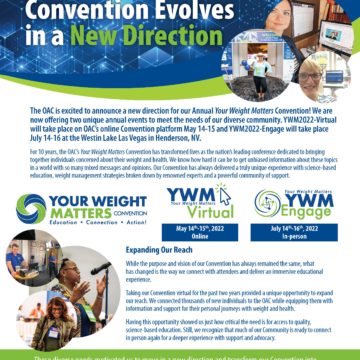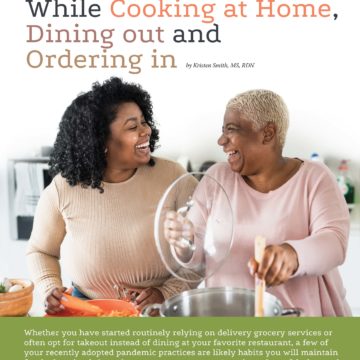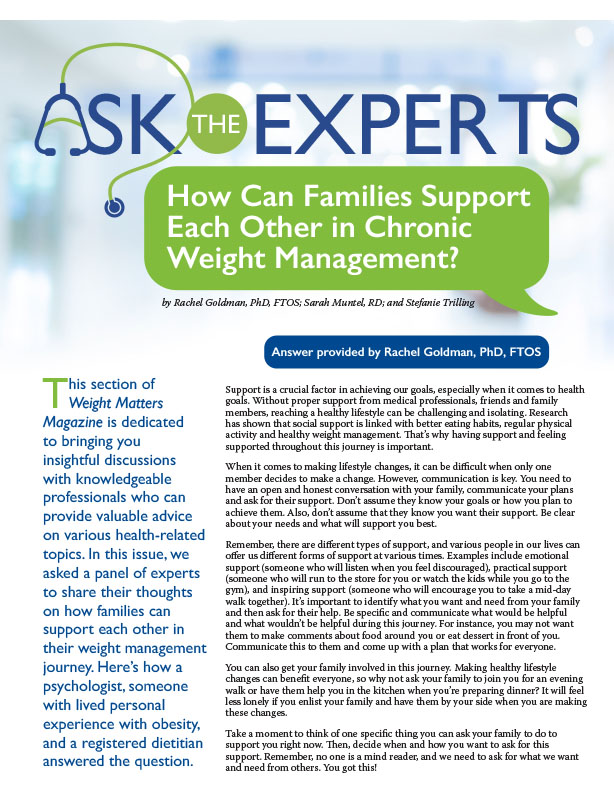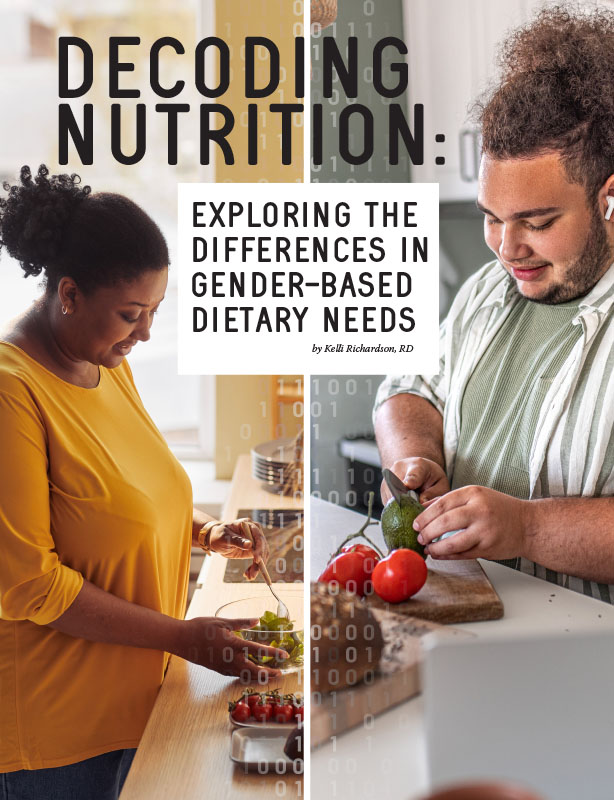Understanding How Obesity Affects Bone Health and Risk of Fractures

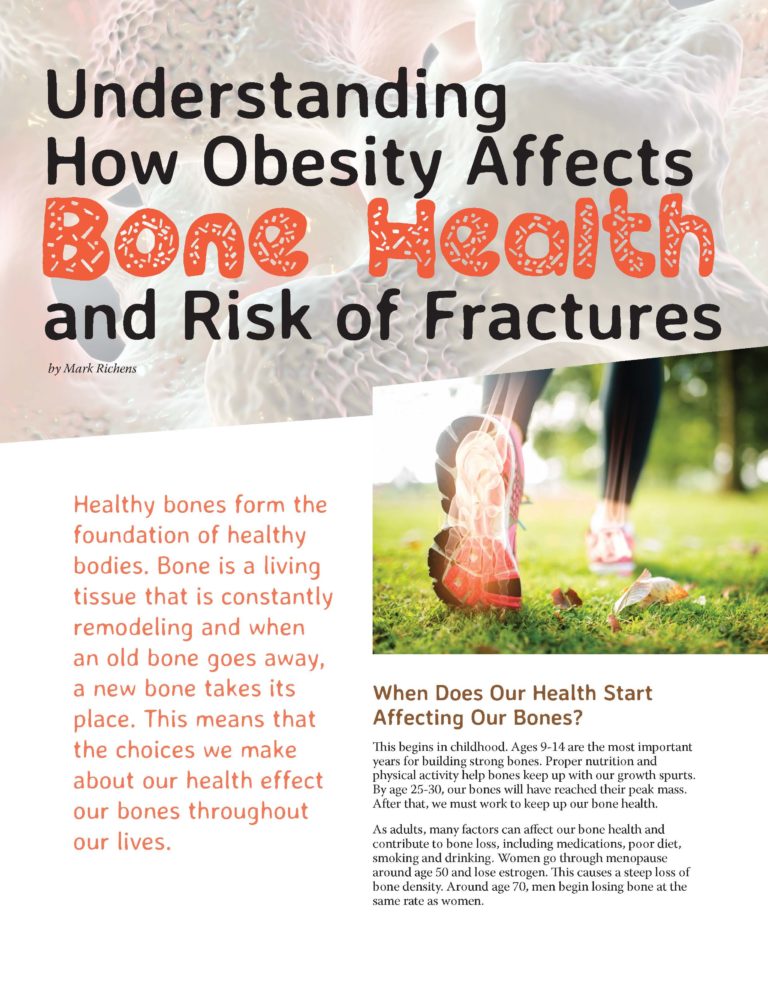
by Mark Richens
Spring 2022
Healthy bones form the foundation of healthy bodies. Bone is a living tissue that is constantly remodeling and when an old bone goes away, a new bone takes its place. This means that the choices we make about our health effect our bones throughout our lives.
When Does Our Health Start Affecting Our Bones?
This begins in childhood. Ages 9-14 are the most important years for building strong bones. Proper nutrition and physical activity help bones keep up with our growth spurts. By age 25-30, our bones will have reached their peak mass. After that, we must work to keep up our bone health.
As adults, many factors can affect our bone health and contribute to bone loss, including medications, poor diet, smoking and drinking. Women go through menopause around age 50 and lose estrogen. This causes a steep loss of bone density. Around age 70, men begin losing bone at the same rate as women.
What Happens to Our Bones When Our Health Isn’t at its Best?
When people lose a certain amount of bone density and develop poor bone quality, they get a disease called osteoporosis. The bones become weak and more prone to break from a low-impact fall, a sudden twist, even a cough or sneeze. Broken bones like this are “fragility fractures.” Age and menopause are the most common causes of bone loss and osteoporosis. Still, medical conditions, medicines and lifestyle factors also can increase your risk of fragility fractures.
How Does Obesity Connect to Bone Health?
For people living with obesity, understanding bone health can be complicated. Scientists who study bone health are changing how they think about obesity and bone health. Consider:
- Having a slender build and “small bones” is a risk factor for osteoporosis.
- Losing weight can cause bone loss.
- Excess weight could protect us against broken bones.
- People living with obesity have greater bone density.
Now, according to recent studies (Obesity and Fractures in Postmenopausal Women: the Incidence Study in Primary Care, Journal of Clinical Densitometry), the belief that obesity protects against broken bones is being challenged. Scientists are also discovering that other conditions affecting people with obesity, like type 2 diabetes and chronic kidney disease can cause bone loss, poor bone quality and increased risk of hip and spine fractures.
Hip and Spine Fractures
The most devastating broken bones due to poor bone health are hip fractures. More than 20% of people die within a year after surgery for a broken hip. Hip fractures also cause lower quality of life and an increased risk of death years later. Having obesity puts you at a higher risk of dying after a hip fracture. One recent study (Survival bias may explain the appearance of the obesity paradox in hip fracture patients) found that people younger than 75 who had obesity and a hip fracture were more likely to die within 30 days of their injury than people the same age who weighed less.
The most common broken bones due to poor bone health are fractures of the bones in the spine. A study from the United Kingdom (How Does Obesity Influence the Risk of Vertebral Fracture? Findings From the UK Biobank Participants) found that men with obesity and larger waists had more broken spine bones than men who were underweight or at healthier weights. Even though the men with obesity had a greater bone density, they still were at higher risk for fractures.
Do People with Obesity Have a Greater Risk of Breaking Bones or Having Poor Bone Quality?
People with obesity do seem to have greater bone density, but bone density is not the only factor in whether you will break a bone. People with obesity might have differences in their bone quality that increase their risk of fracture.
There are a few reasons for why people with obesity might have these differences in bone quality:
- Obesity might affect how their bones do remodeling.
- Many people with obesity also have type 2 diabetes, which also increases fracture risk.
- Chemicals produced by body fat can make the bones less strong.
- Fat cells and the cells that form bones come from the same stem cells, so more fat cells mean fewer bone-forming cells.
Conclusion
There are many reasons why someone may have problems with bone health. With obesity being one of those factors, it’s important to consult with your primary care physician about what you can do to improve your bone health and reduce your risk of fractures.
About the Author:
Mark Richens is the Communications Manager for American Bone Health. He graduated from the University of Missouri School of Journalism and worked for 20 years as a writer and editor for newspapers and digital media. More recently, Mark has worked as an agency public relations director and as a consultant for a global medical technology company. He lives in Northern Virginia.
by Rachel Goldman, PhD, FTOS; Sarah Muntel, RD; and Stefanie Trilling Winter 2024 This section of Weight…
Read Articleby Sarah Ro, MD; and Young Whang, MD, PhD Fall 2023 Mary, a postmenopausal woman with a…
Read Articleby Kelli Richardson, RD You’ve probably heard the generic advice before: Eat your fruits and veggies. Limit…
Read Article




